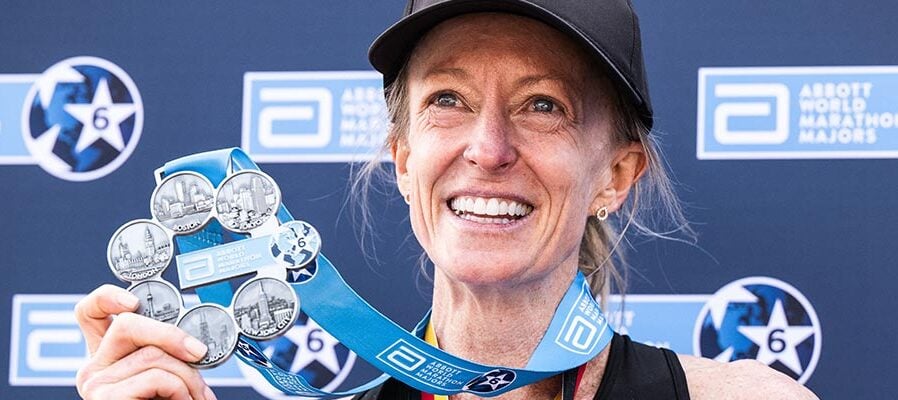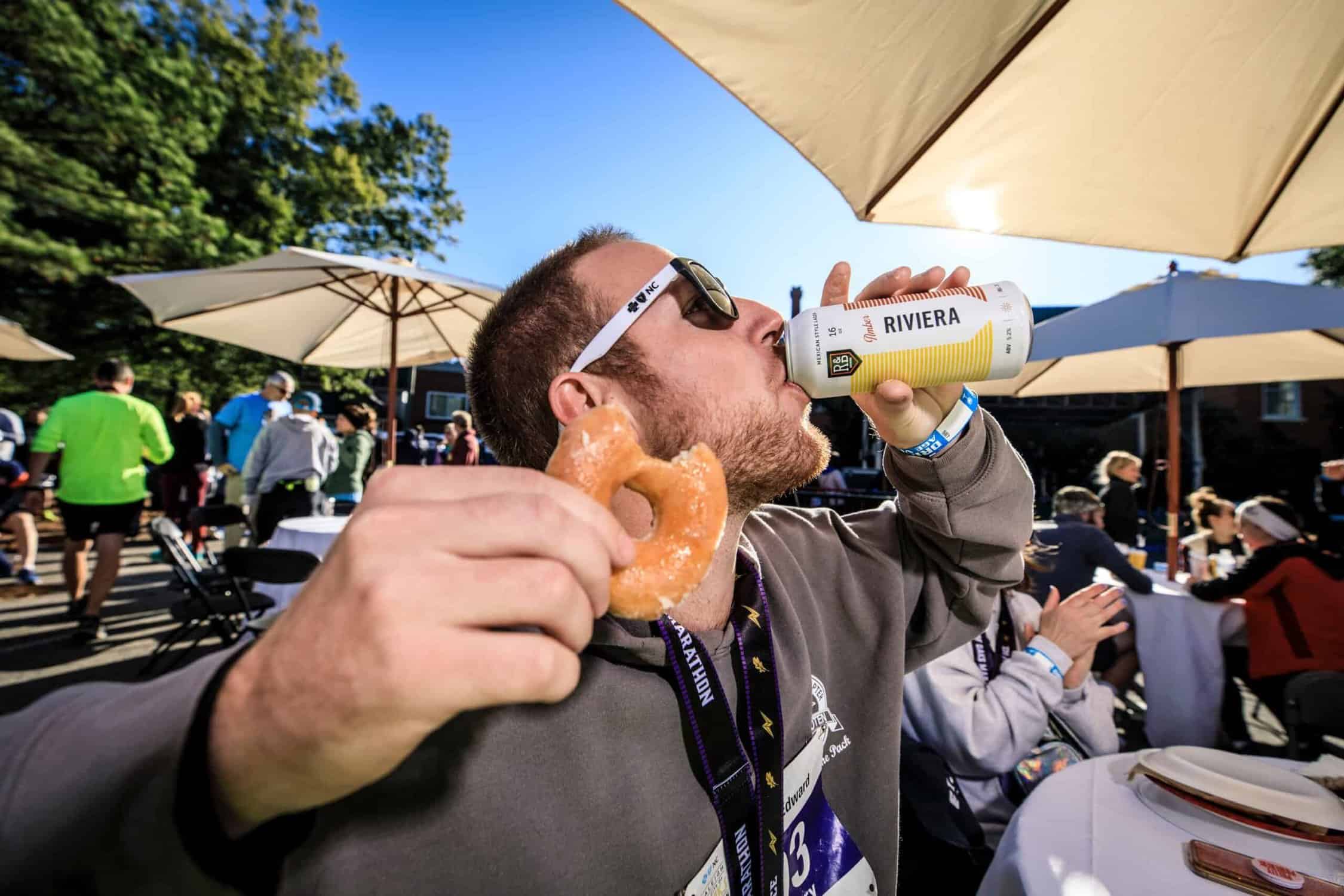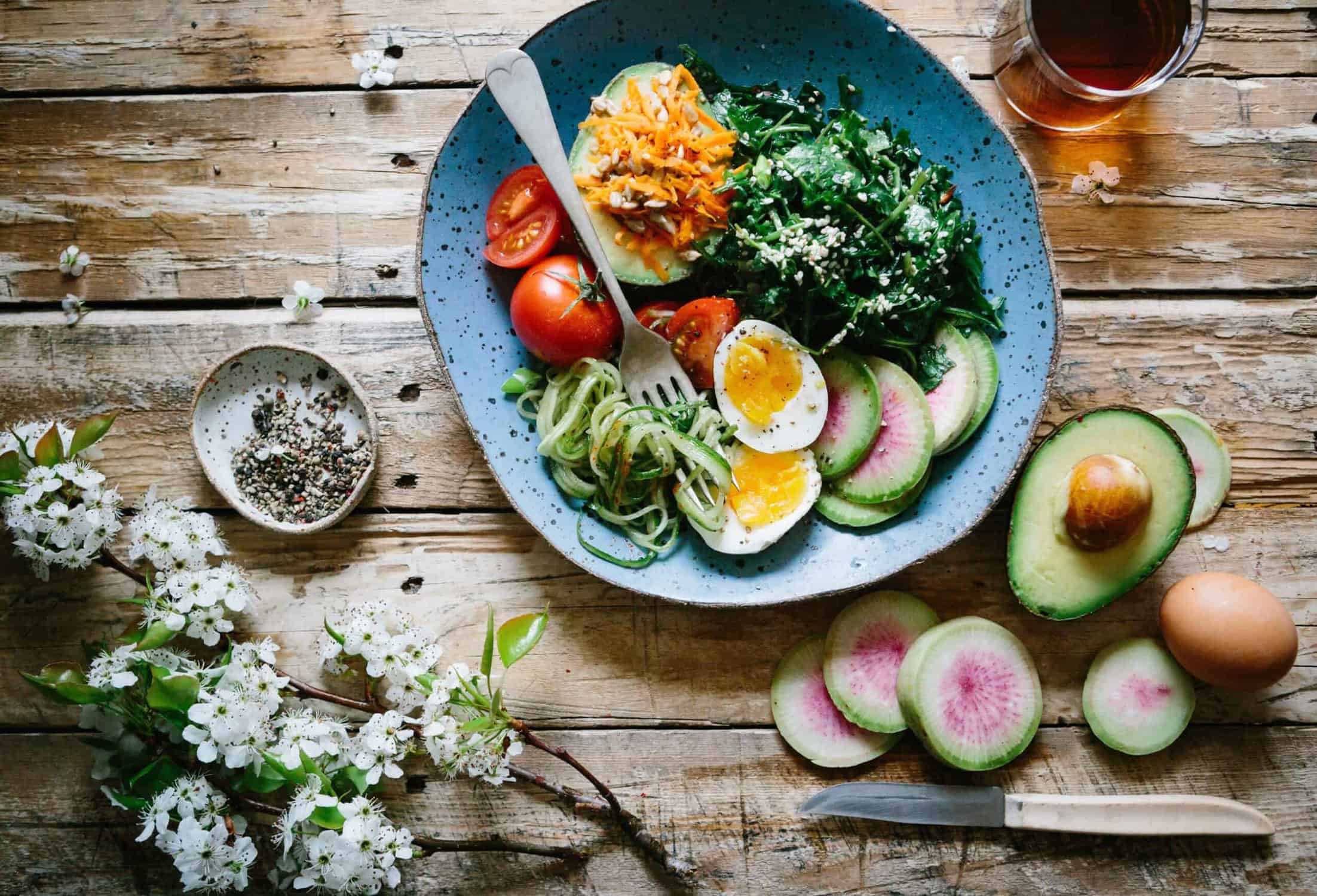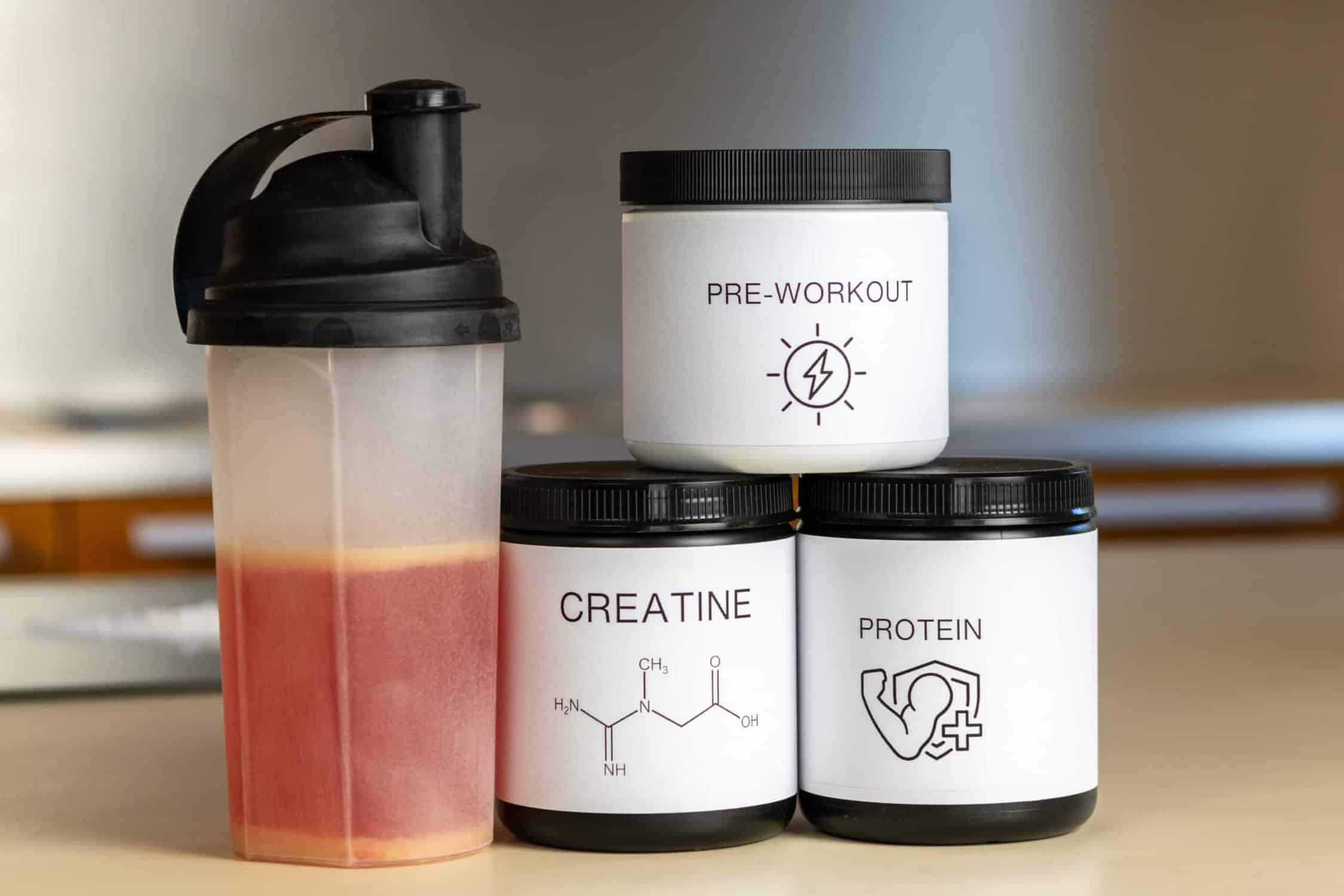If anyone knows how to achieve big results as a runner in a way that’s sustainable, it’s Deena Kastor. The Olympic bronze medalist has an impressive resume, setting records at every distance from 5K to the marathon for over three decades. At 51 years old, Kastor has slowed down a little, but she still competes enthusiastically and with a great focus on her health.
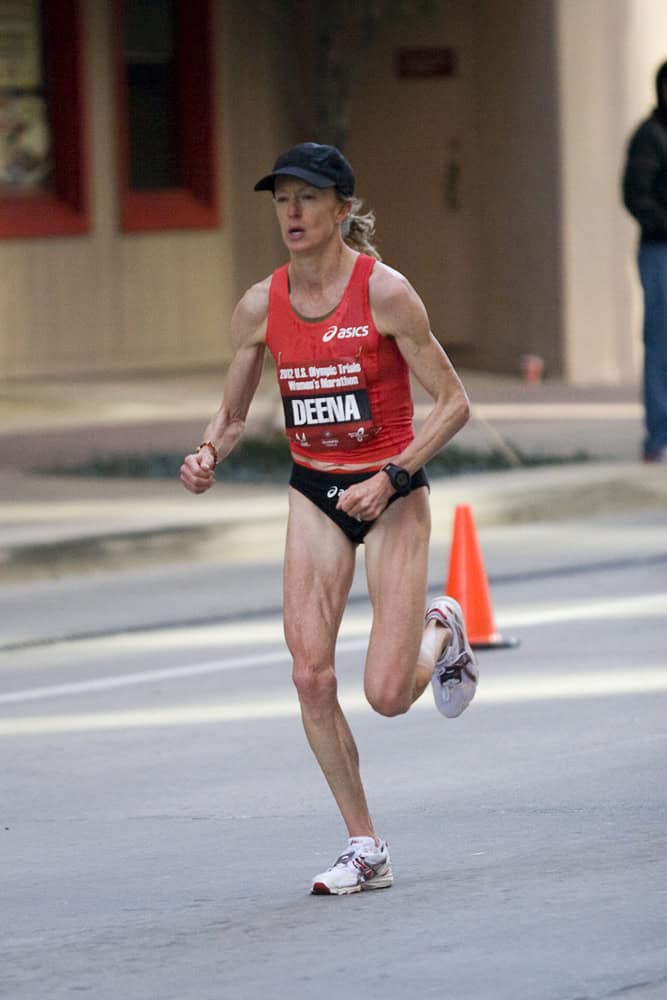
“Food is just a beautiful way to treat ourselves and really nourish ourselves for the demands of our day. It’s such a gift,” she told a room full of enthusiastic marathoners at the inaugural Every Woman’s Marathon Wellness Expo. Standing behind a large counter with a line of fresh ingredients in front of her, she was going to teach us how to make two of her favorite recovery recipes.
Kastor points to a shift in her mindset and cooking habits as a young adult to her long-term athletic success. Though Kastor was considered a prodigy from a young age, she found herself feeling burnt out and injury-prone after college. As she divulged in her memoir Let Your Mind Run, she’d always assumed that her innate talent would propel her to win. For the first time she understood she could influence her performance with positive lifestyle choices.
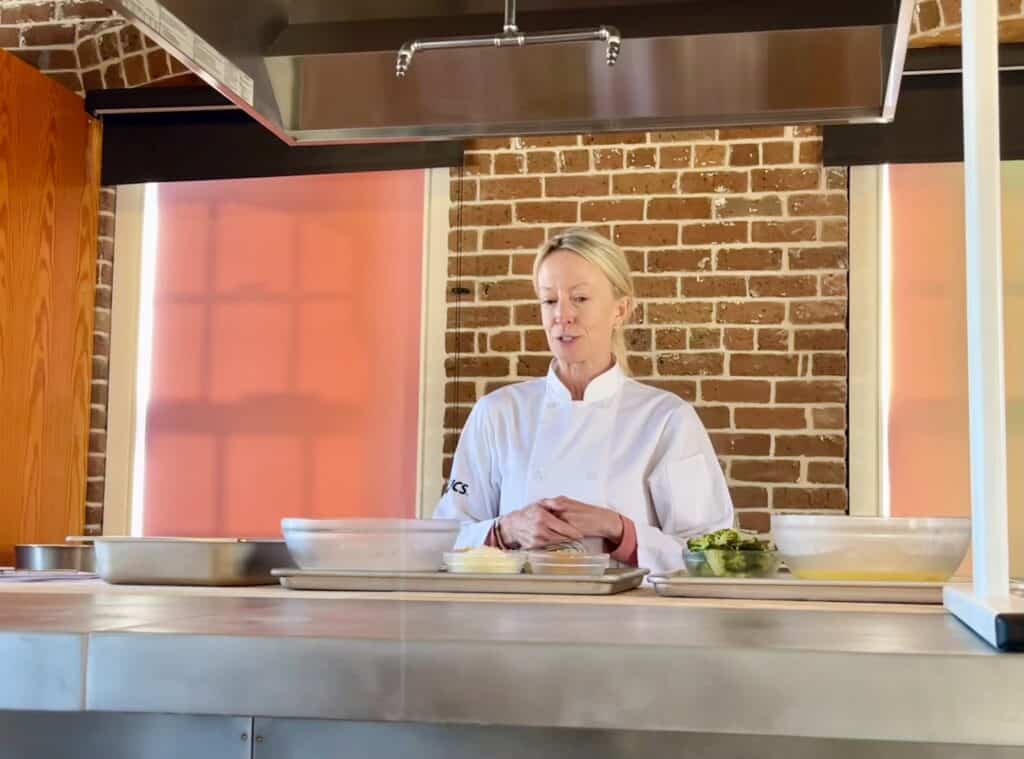
“It took getting to a place in my life where I felt deserving of good things,” she told me after the class was over.
She found cooking to be a form of self-love that gave back in dividends to her performance. “When you’re valuing your nutrition and sleep and really taking the time to pursue those hours in your shoes with your whole heart — it shouldn’t have been so shocking, but it was shocking how easily progress and growth came just by making those simple decisions.”
Deena Kastor’s Nutrition Approach
You won’t see Kastor food restricting in training, in recovery — and certainly not on the morning of a race. Instead, she likes to think of what she can add to her meals every day to get more nutrients in.
Though some runners swear by fasting, on race mornings, Kastor goes for scrambled eggs and a bagel.
Eggs are incredibly beneficial to runners. Besides being protein rich they are a good source of vitamins A, B2, B5, and B12; folate; phosphorous; and selenium. And bagels will top off your glycogen stores with a hefty dose of carbohydrates, while being easy to digest.
Ready to add more to your running diet? Whip up Kastor’s easy veggie frittata recipe, her go-to after a long run. Prep it on Sunday and eat it all week long. Cut it up and put it on a bagel or croissant to get that healthy mix of carbs and protein.Top it with arugula or any leafy green you have on hand.
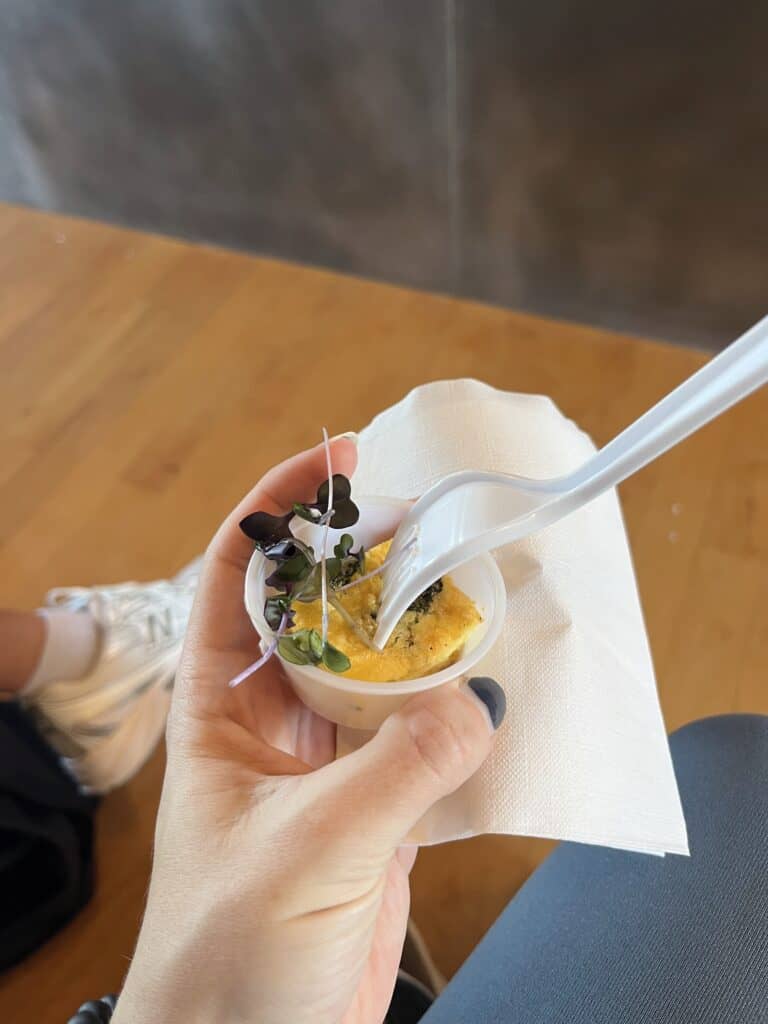
Deena Kastor’s Long Run Frittata Recipe
Ingredients:
- 4 cups broccoli (or any veggies of your choice), cut in small bite size pieces
- 12 free-range eggs
- 2 cups milk of choice
- 2 cups mild white cheddar cheese, grated
- ½ teaspoon flaked sea salt
- ½ teaspoon pepper
- ½ cup Parmesan cheese
- 2 avocados, sliced
- Pesto (optional)
Directions:
- Preheat oven to 350°F. Grease a 13 x 9 glass or ceramic baking dish with butter or olive oil. S
- Sauté broccoli in butter or olive oil.
- In a bowl, whisk eggs, cream, and salt (can be put in a blender for 5-6 seconds).
- Pour everything into a baking dish, evenly distribute cheese and broccoli.
- Sprinkle with pepper.
- Bake for 45 minutes.
- Sprinkle with Parmesan cheese and bake for another 5 minutes, or until fork comes out clean when inserted in middle).
- Let cool for 10 minutes before cutting.
- Top each piece with a few slices of avocado and drizzle with pesto for an added nutritional boost.
Can be covered and stored in fridge for up to 3 days.
Why This Recipe is Great for Runners
Milk is a great source of protein and calcium, an important electrolyte. Kastor prefers to buy milk fortified with vitamin D to improve the absorption of calcium.
“The high amount of protein jumpstarts recovery, allowing you to more quickly and efficiently adapt to the training,” she said.
Cruciferous vegetables like broccoli, cauliflower, and Brussels sprouts are high in antioxidants, which help reduce inflammation.
Avocado is high in potassium and magnesium, two additional electrolytes that play a key role in muscle function.

